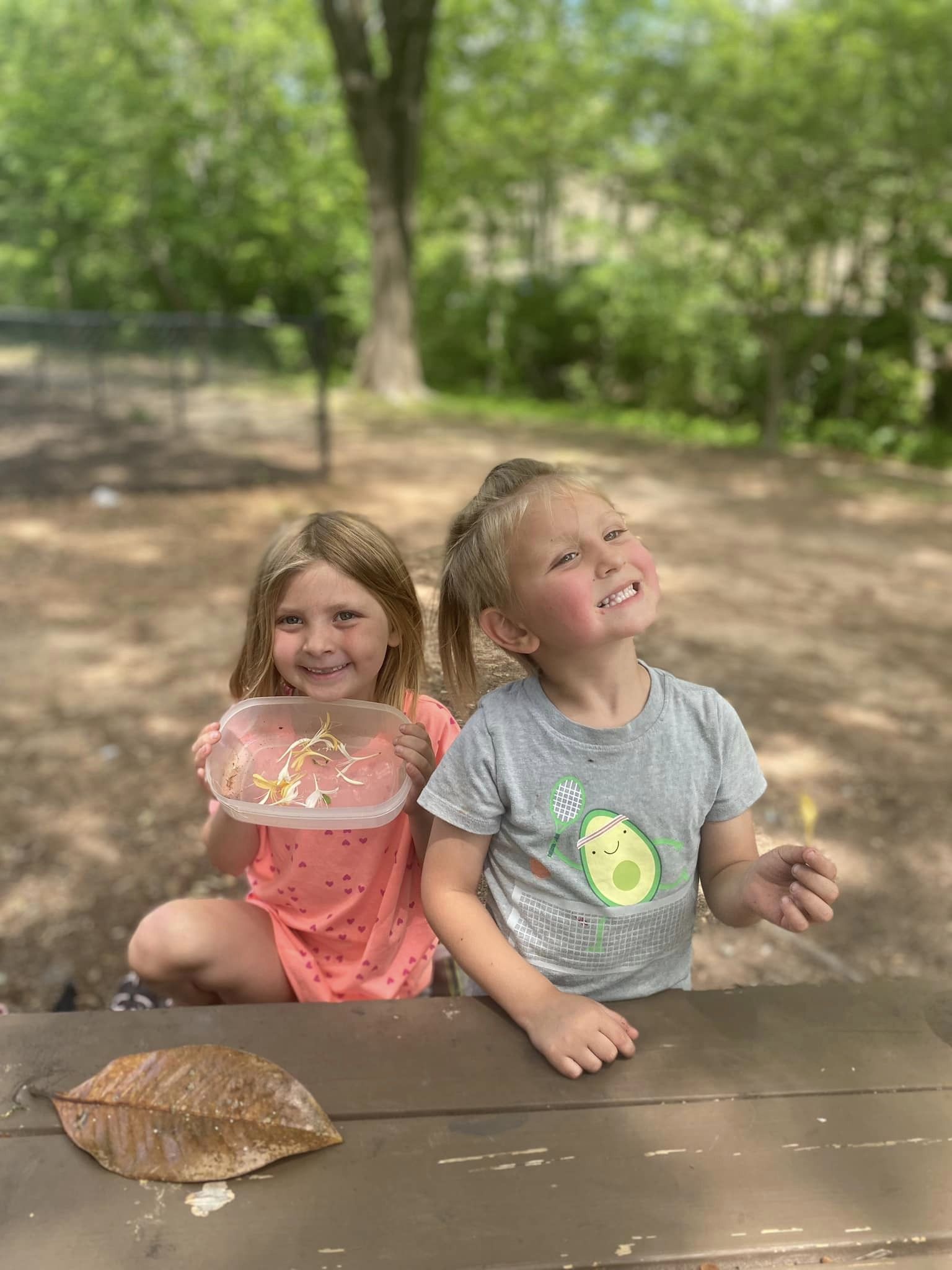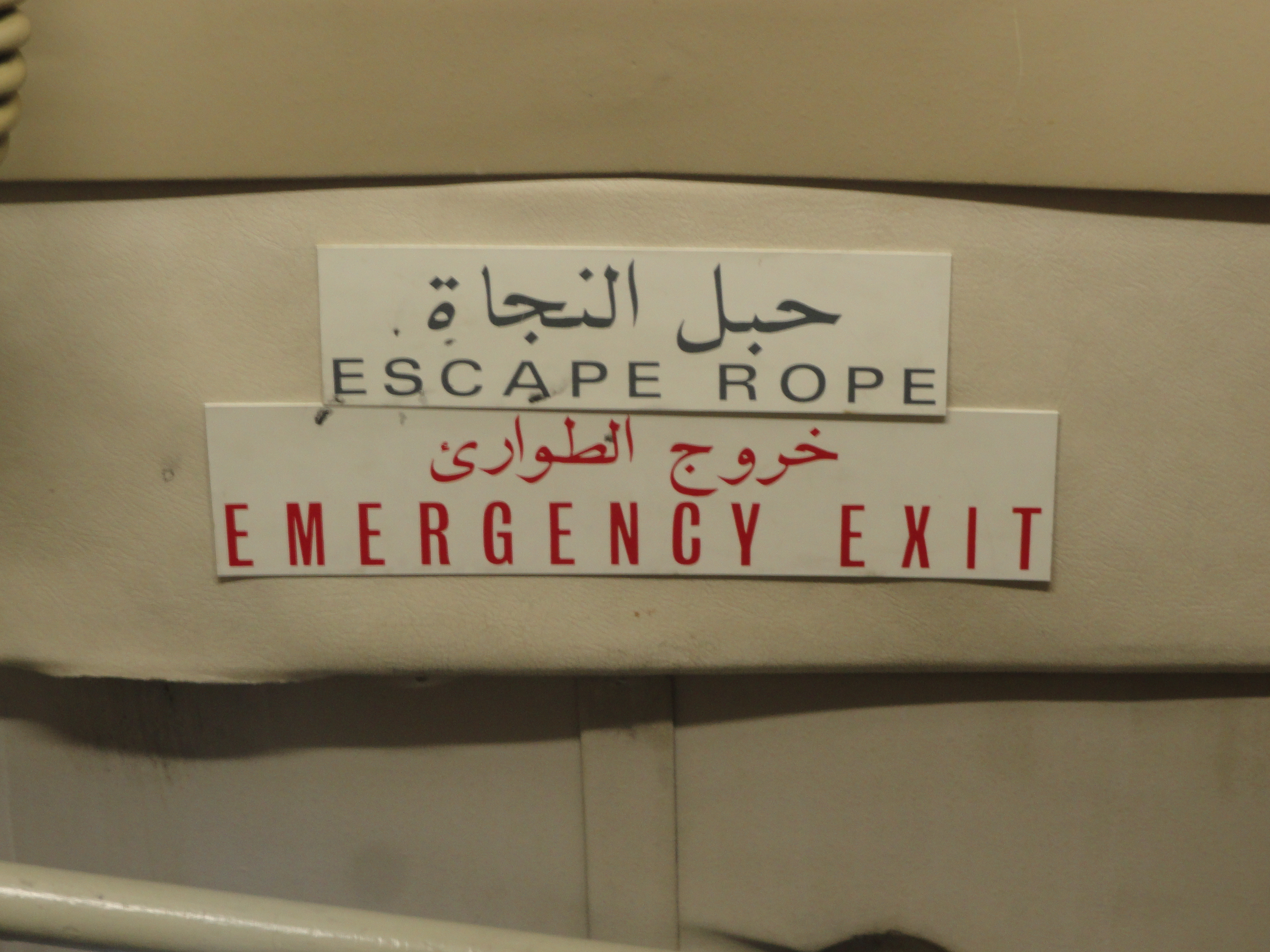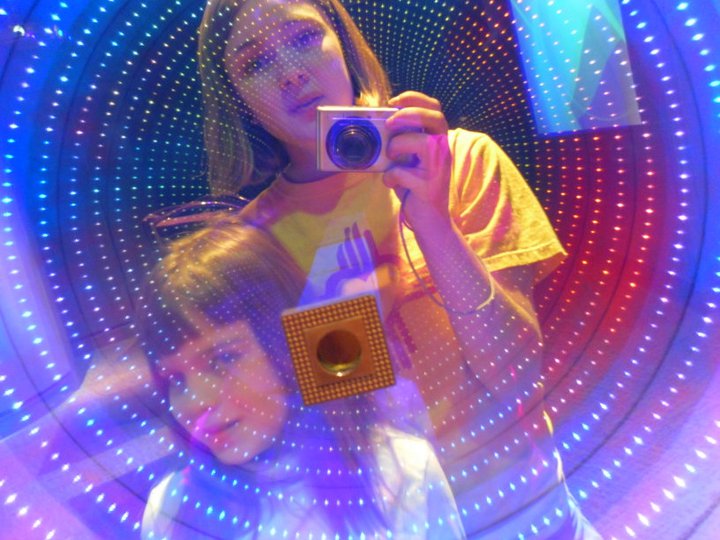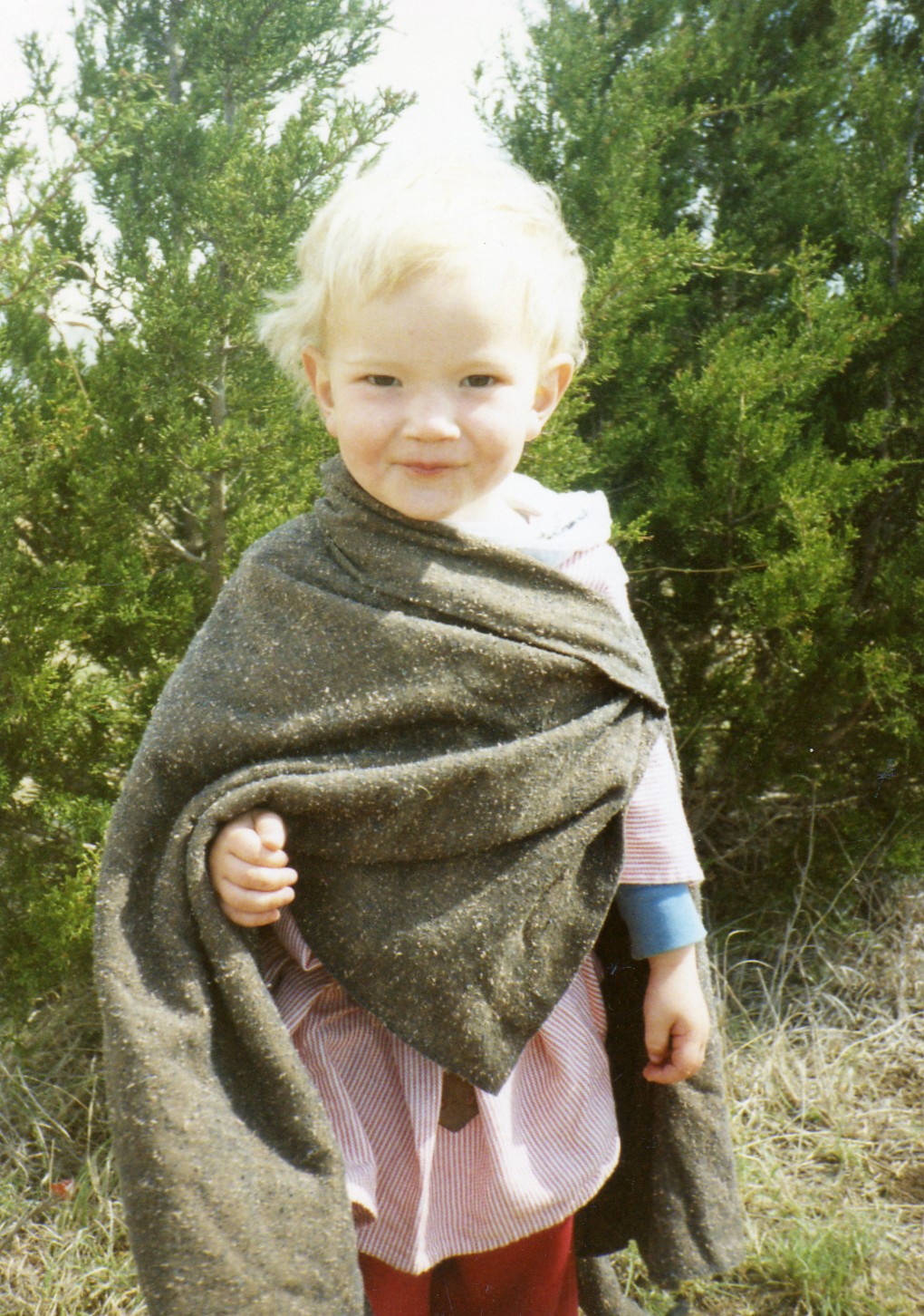When the kids were babies they would go to sleep with us, nursing, or in dad's lap, and we'd put them in bed. That evolved into them going to sleep where they wanted to, or in a carseat, or a backpack (hiking/frame-pack) or beside us on the couch or on a blanket on the floor where one of us was doing something, and we'd put them in bed.
Getting up used to be "get up by noon," when they got old enough to want to stay up late on the computer or watching movies or playing games.
Then it became "Sleep as long as you want to, but at noon others are free to make noise." We still try to keep it quiet until noon or until everyone's awake, whichever comes first.
. . . .
When Marty worked at a grocery store, he woke himself up at 5:30 to get there at 6:00. He had a very timed and regular routine for himself. The first few weeks I got up too to make sure he'd be up, but he worked there full time for over a year and was only late once.
The lack of a "regular schedule" has never kept our kids from getting where they needed or wanted to be on time without trouble. When Kirby was very young, eight or so, he used to wake up at 6:25 a.m. to record Teenage Mutant Ninja Turtles at 6:30. He would pause for the commercials so they wouldn't be on the tape, and then when the show was over he would go back to bed. He has them all on tape, marked in his little-kid writing.
The account above is from 2007, and is similar to some things here: SandraDodd.com/sleep
photo by Sandra Dodd, of stained-glass light falling on a young friend's lovey.






 Funny songs, stories, pictures and poems amuse babies and adults all. Amusing food and unusual table settings can be fun. Comedy movies or TV shows are good for relaxing, passing time, and for exposure to different geographical, social or historical settings.
Funny songs, stories, pictures and poems amuse babies and adults all. Amusing food and unusual table settings can be fun. Comedy movies or TV shows are good for relaxing, passing time, and for exposure to different geographical, social or historical settings.



 then you have "the basics" all around your kids all the time. And because those basics are there, kids will learn about them&mdashthey'll learn that words are a valuable tool and there are many ways to use them. They'll learn that numbers and patterns are as useful as words and sometimes better than words for a given purpose. They'll learn those things without lessons, living and playing and snuggling on the couch with you without ever needing to draw a line between those things and learning.
then you have "the basics" all around your kids all the time. And because those basics are there, kids will learn about them&mdashthey'll learn that words are a valuable tool and there are many ways to use them. They'll learn that numbers and patterns are as useful as words and sometimes better than words for a given purpose. They'll learn those things without lessons, living and playing and snuggling on the couch with you without ever needing to draw a line between those things and learning.





